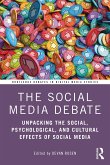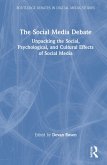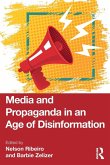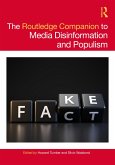This book analyzes the role of social networks during electoral campaigns around the world, taking into account the non technological particularities (political, electoral, social, economic, cultural) of the media configurations of different countries.
Political parties all over the world engage in real virtual battles to appear at the cutting edge of technology. Providing in depth case studies from across Europe, North America, Latin America, Asia, and Africa, this book emphasizes the need to study how institutions, culture, and politics shape the processes of technology diffusion in each context. It asks: what are the uses of social networks in election campaigns in different countries? and what are the factors that lead to social networks playing an important role in the elections of a given country? International and comparative in focus, this book brings together work on the uses of social networks (Facebook, X (formerly Twitter), WhatsApp, TikTok, Instagram, Telegram, and more) in the context of an election campaign by different actors (such as parties, companies, journalists, and voters). This book explores the different methodological and theoretical approaches developed for the study of the uses of social networks in an electoral context. The contributors focus on the identification of the "online ecosystem" of electoral actors in each country, studying their strategies and logic. They also analyze the scaremongering rhetoric about the possible effect of social media on elections as an object of study. While taking seriously the issues of polarization, disinformation, or negative campaigning, this book provides understanding of how these work and how their discourses are constructed.
This book will be of great interest to upper level students and scholars of Political Science, Media, and Communications Studies.
Political parties all over the world engage in real virtual battles to appear at the cutting edge of technology. Providing in depth case studies from across Europe, North America, Latin America, Asia, and Africa, this book emphasizes the need to study how institutions, culture, and politics shape the processes of technology diffusion in each context. It asks: what are the uses of social networks in election campaigns in different countries? and what are the factors that lead to social networks playing an important role in the elections of a given country? International and comparative in focus, this book brings together work on the uses of social networks (Facebook, X (formerly Twitter), WhatsApp, TikTok, Instagram, Telegram, and more) in the context of an election campaign by different actors (such as parties, companies, journalists, and voters). This book explores the different methodological and theoretical approaches developed for the study of the uses of social networks in an electoral context. The contributors focus on the identification of the "online ecosystem" of electoral actors in each country, studying their strategies and logic. They also analyze the scaremongering rhetoric about the possible effect of social media on elections as an object of study. While taking seriously the issues of polarization, disinformation, or negative campaigning, this book provides understanding of how these work and how their discourses are constructed.
This book will be of great interest to upper level students and scholars of Political Science, Media, and Communications Studies.









